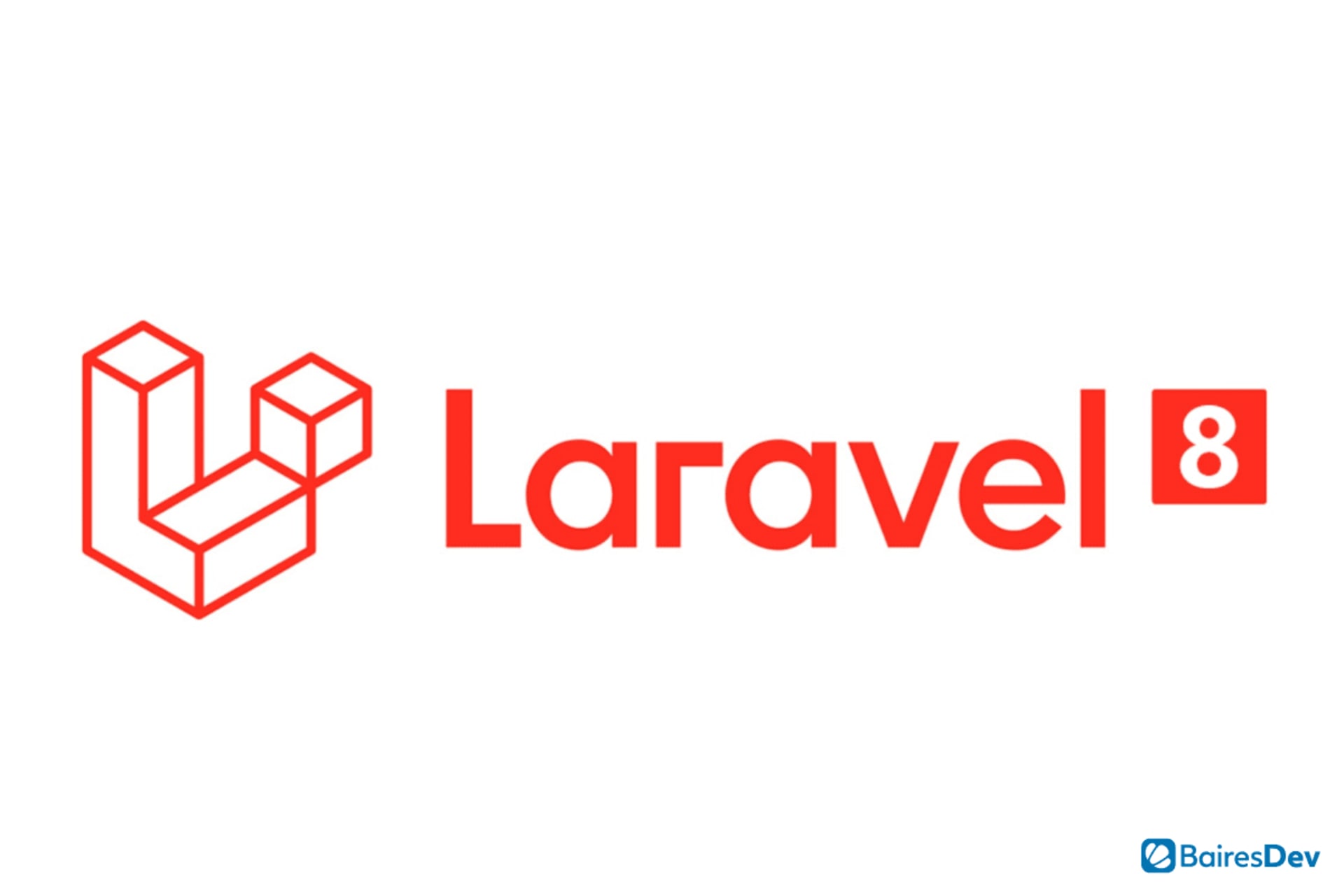- Home
- Technologies
- Laravel
- Hire Laravel Developers
Hire Laravel Developers
Hire vetted Laravel talent.
Our top 1% of tech talent has already undergone a rigorous vetting process. Get bilingual, nearshore Laravel developers on your team within 2 weeks.
500+ companies rely on our top 1% tech talent.
No time to find the top talent yourself? Skip the hassle of recruitment.



The ultimate guide for hiring Laravel developers
A scalable, secure, and efficient framework, Laravel offers numerous advantages when you're building web applications. And whether you're creating an e-commerce platform or an enterprise application, you need Laravel developers who are experienced and knowledgeable.
Our Laravel developers are among the top 1% of LATAM tech talent. We comb through millions of applications each year to identify the best developers and then pair them with our clients based on their needs. Using our knowledge of the recruitment process, we created this guide to help you find the right developers for your project.
Before you start hiring
Timeline and budget
At the start of the process, define your timeline and budget. This helps with resource allocation, risk management, and setting realistic project scopes. With a well-defined budget and timeline, you can make informed decisions about features to prioritize, how many developers to hire, and where to set project milestones.
Niche experience in Laravel
Developers who have focused on Laravel can leverage their in-depth knowledge of the framework's features and best practices to maximize application capabilities. They are also adept at implementing robust security measures, ensuring a more reliable application. Opt for developers with deep Laravel expertise for faster development, stronger performance, and greater scalability.
Collaborative mindset
A Laravel development project requires seamless communication between stakeholders and team members. Your developer must work closely with you to ensure the application meets your specifications. This collaborative mindset involves embracing an iterative development approach and incorporating regular feedback.
Location and time zone
Hiring developers from regions with a time zone similar to your own can significantly streamline collaboration on projects. This proximity minimizes delays due to differences in working hours, making it easier to schedule meetings and maintain steady progress.
By choosing developers who are geographically close, you can manage projects more effectively in real-time. Additionally, developers from similar locales are more likely to understand cultural nuances and share the same language, which can enhance team integration and simplify communication.
Portfolio and references
Portfolios showcase real examples of a candidate's experience with Laravel development. This is one of the best ways to determine whether the candidate has the necessary skills to complete your project successfully. References can provide further insight into the Laravel developer's expertise. Former team members or clients can answer questions about the candidate's work ethic, reliability, and ability to meet deadlines. Developers with a history of solid performance and positive reviews are more likely to deliver high-quality results in the future.
17 skills every Laravel developer should have
Laravel is a powerful PHP framework primarily used to create web applications. Known for its elegant syntax, robust tools, and features like routing, database management, and authentication, Laravel streamlines the development process.
Hiring experienced Laravel developers allows you to enhance code maintainability, improve workflows, and deliver high-performance applications. When evaluating candidates, you should assess a variety of qualities, including technical abilities and soft skills.
Skilled Laravel developers deliver quality, secure, and efficiently coded applications. This not only reduces development time and costs but also fosters innovation and adaptability, ensuring projects evolve with changing requirements and technologies. Here are essential skills to consider when evaluating candidates.
Technical skills to look for in your ideal Laravel developer
1. PHP proficiency
Laravel is a PHP framework. With a background in PHP programming, developers can utilize all of Laravel's features to write clean, efficient, and maintainable code.
2. Database management
Laravel developers should have experience with databases, especially MySQL. This knowledge allows them to enhance application performance, scalability, and reliability. It also helps them maintain consistency.
3. RESTful APIs
Understanding RESTful APIs allows Laravel developers to facilitate efficient communication between web applications and other services. This experience supports scalability and allows developers to create flexible, maintainable, and interoperable applications.
4. Front-end technologies
Front-end technologies and languages like HTML, CSS, JavaScript, and React are important for creating dynamic, user-friendly, and responsive interfaces. By integrating the front end with the back end, Laravel developers can enhance the user experience and deliver modern and interactive web applications.
5. Version control
Proficiency with Git and platforms such as GitHub or Bitbucket facilitates version control and collaboration. This allows Laravel developers to track changes, manage code versions, and collaborate more effectively.
6. Testing and Debugging
Writing and running tests, including unit, feature, and integration tests, and debugging are essential skills for ensuring the functionality, reliability, and performance of apps. Candidates should be able to use Laravel's debugging tools and error logging to streamline bug diagnostics and resolution.
7. Authentication and Authorization
Authentication and authorization help ensure secure access control within apps. Candidates should understand Laravel's authentication system and know how to implement role-based access control.
8. Package management
Experience with Composer, the PHP package manager, is critical for managing project dependencies. This is important for extending the functionality of applications and ensuring they remain modular, maintainable, and up-to-date.
9. Command line interface (CLI)
CLI enables the efficient management and automation of tasks. Laravel's Artisan CLI provides a set of commands for tasks such as database migrations, seeding, and task scheduling. This enhances productivity and streamlines development workflows.
10. Deployment and DevOps
Laravel developers should know DevOps and deployment practices to ensure the smooth delivery of applications. Overall, they enhance collaboration between development and operations teams, improve deployment speed and reliability, and ensure maintainability and scalability.
11. Security best practices
Knowledge of common security vulnerabilities and best practices is critical for protecting apps from threats and attacks. Best practices include leveraging Laravel's built-in authentication and authorization features, encryption, validating and sanitizing user input, and guarding against threats like SQL injections, XSS, and CSRF.
12. Performance optimization
Techniques for performance optimization, such as caching, query optimization, and load balancing, allow Laravel developers to ensure apps run efficiently.
13. API documentation
Developers should be able to document APIs and code to provide clear guidelines on how to interact with the application programming interface. Through documentation, they can ensure maintainability and readability for other developers.
Soft skills to look for in your ideal Laravel developer
14. Teamwork
Laravel projects are collaborative efforts. Your Laravel developers work as part of a team to create the application. The developers should have strong communication skills and the ability to work productively within a group setting.
15. Time management
Effective time management allows developers to meet project deadlines. You want Laravel developers who know how to manage their workload, prioritize tasks, and adhere to milestone deadlines. Time management skills reduce the risk of project delays and help developers overcome unforeseen challenges without compromising the project's schedule.
16. Professionalism
Professionalism entails responsible, respectful, and ethical conduct. Professional Laravel developers contribute to harmonious team dynamics and are accountable for their work. They also follow best practices regarding protecting sensitive data and maintaining the project's integrity. Laravel developers demonstrate professionalism by building trust and credibility with your organization.
17. Work ethic
Laravel developers with a strong work ethic commit to their goals and ensure consistent progress. They implement high standards for themselves to guarantee reliable and efficient code. Their strong work ethic also drives them to go above and beyond expectations, proactively solving problems and looking for ways to improve. This keeps projects on track and creates a more reliable final product.
17 questions to identify top Laravel developers
When interviewing Laravel developers, it's important to ask questions that first assess the candidates' technical skills and knowledge. Employers will also usually conduct a coding test to further assess specific on-the-job knowledge.
The following set of questions is meant to uncover not only the candidates’ technical knowledge but also their problem-solving abilities, teamwork and communication skills, and adaptability — all crucial traits for success in a collaborative environment.
Here are a few examples of technical interview questions:
1. How do you optimize performance in a Laravel application?
There are a few methods I use to improve performance, including:
- Optimizing database queries by minimizing the number of queries and selecting only the necessary columns.
- Leveraging the caching mechanisms provided by Laravel.
- Utilizing Laravel Mix to optimize front-end assets.
- Minimizing CSS and JavaScript files to reduce the number of HTTP requests.
- Implementing eager loading to prefetch related model data.
- Only using middleware that’s necessary for specific routes to reduce overhead.
Using a combination of these methods can significantly improve response times and ensure an efficient use of resources.
2. How do you handle authentication in Laravel?
Laravel provides a comprehensive authentication system that can easily integrate into applications using simple commands and configuration settings. For example, I might use the "php artisan make:auth" command to generate the necessary authentication scaffolding. This creates a complete authentication system with user registration, login, logout, and password reset functionality.
3. How do you migrate databases in Laravel?
Laravel has a built-in migration system, making it easy to migrate a database. I take the following steps:
- Create the migration files.
- Define the schema.
- Run the "migrate" Artisan command.
- Refresh and run seeders as necessary.
4. What is middleware in Laravel, and how does it work?
Middleware in Laravel are filters that intercept HTTP requests entering the application. They act as a mechanism for adding additional layers of logic to incoming requests. These can include authentication, authorization, logging, or modifying request data before it reaches the application's core logic.
5. How do you manage environment configuration in Laravel?
In Laravel, you manage environment configuration using the “.env” file located in the application's root directory. This file contains key-value pairs for configuration settings, including database credentials, mail server settings, and application mode. Laravel reads these variables using the “env” helper function. This allows for different configurations in development, testing, and production environments without changing the core code.
6. What is Laravel Artisan, and how do you use it?
Artisan is Laravel's command-line interface (CLI) tool that helps automate repetitive tasks. Common Artisan commands include “php artisan migrate” to run database migrations, “php artisan make:model” to generate new Eloquent models, and “php artisan serve” to start the development server. Artisan simplifies tasks such as cache clearing, queue management, and database seeding, boosting productivity and efficiency.
7. Can you explain the concept of rate limiting in Laravel and how to implement it?
Rate limiting in Laravel controls the frequency of requests a user can make to the application. It's crucial for preventing abuse and ensuring fair usage of resources. Laravel provides an easy way to implement rate limiting using middleware. You can define rate limits in the “RateLimiter” facade within the “boot” method of the “RouteServiceProvider”. For example, “RateLimiter::for('global', function (Request $request) { return Limit::perMinute(60); });” limits users to 60 requests per minute. This is applied to routes using middleware like “throttle:global”.
8. What are Laravel Events and Listeners, and how do you use them?
Laravel's event system allows you to decouple various parts of your application by listening to and responding to specific events. Events are objects or actions that are triggered in your application while listeners handle these events. To create an event, use “php artisan make:event EventName” and “php artisan make:listener ListenerName” for a listener. You register events and their listeners in the “EventServiceProvider.” This system is useful for sending notifications, logging activities, or updating caches when specific actions occur, enhancing modularity and reusability of code.
9. How do you handle file uploads in Laravel?
Handling file uploads in Laravel is straightforward using the “Request” class. First, ensure your form is set to “multipart/form-data”. In your controller, you can use “$request->file('file')->store('uploads');” to store the uploaded file. Laravel provides several methods to handle file uploads, such as “store”, “storeAs”, and “move”. The “Storage” facade offers a unified API to interact with various storage backends, including local, S3, and FTP, making it flexible and scalable for different storage needs."
10. What is the Blade templating engine, and what are its benefits?
Blade is Laravel's powerful templating engine that allows you to use plain PHP code in your templates without clutter. It provides convenient shortcuts for common tasks like looping and conditional statements. Blade templates are compiled into plain PHP and cached for better performance. Benefits include cleaner syntax, reusable components, template inheritance, and built-in protection against cross-site scripting (XSS) attacks. Blade's directives, including “@if” and “@foreach,” enhance code readability and maintainability.
11. What is the purpose of the Composer in Laravel projects?
Composer is a dependency management tool for PHP, essential for Laravel projects. It allows developers to declare the libraries their project depends on and manages the installation and updates of these dependencies. The “composer.json” file lists these dependencies. Using Composer, Laravel can integrate third-party packages and manage their versions efficiently, ensuring consistency across development environments. Additionally, Composer's autoloading capabilities simplify class loading and namespace management.
12. How do you handle error and exception handling in Laravel?
Laravel provides a robust error and exception handling system that is out of the box. Errors and exceptions are handled by the “Handler” class located in “app/Exceptions/Handler.php”. In this class, you can customize how exceptions are rendered and logged. Laravel also supports logging using Monolog, which can be configured in the “config/logging.php” file. Additionally, I use methods like “abort(404)” to handle specific HTTP exceptions and create custom exception classes for more granular control.
13. How does Laravel’s Localization feature work?
Laravel's Localization feature enables me to support multiple languages in my application. Language files are stored in the “resources/lang” directory, organized by language code (e.g., “en”, “fr”). I define translation strings in these files and use the “trans” or “_ _” helper functions to fetch the translations in your views and controllers. The default locale is set in the “config/app.php” file, and I can change it dynamically using the “App::setLocale” method.
14. Can you describe a challenging problem you faced in a Laravel project and how you resolved it?
This question provides insight into the candidate's problem-solving skills and how they use them to solve real-world problems.
15. Can you explain the process of deploying a Laravel application to a production environment?
Gain insight into the candidate's knowledge of deployment processes, including server setup, environment variable configuration, and ensuring the app runs smoothly.
16. Can you tell us about your background and how you got into web development?
By asking this question, you'll learn more about developer's passion for their work and experience in the field.
17. How do you stay updated with the latest trends and technologies in web development?
It's essential for a Laravel developer to stay up to date with the latest advancements in web development. This helps you probe their knowledge of news in the space.
FAQ
What is Laravel used for?
Laravel is used to create secure and scalable web applications. A PHP framework, it provides an elegant syntax and tools to streamline the development process.
What should I look for when I hire a Laravel developer?
When you want to hire dedicated Laravel developers, you should look for strong PHP skills, knowledge of database management, and experience with front-end technologies.
What are the typical responsibilities of a Laravel developer?
Responsibilities for a Laravel developer vary depending on the specific business and role. However, they typically include developing and designing web applications, integrating front-end components, and implementing security and data protection measures.
Can I hire remote Laravel developers?
Yes, you can hire remote Laravel developers. Laravel development is well-suited to a remote environment. In fact, this approach allows you to tap into global and diverse talent, which is essential for building innovative web apps.
What are the benefits of hiring a Laravel developer over a general PHP developer?
If you're considering hiring a Laravel developer, it's important to understand the benefits Laravel offers over other PHP frameworks. Laravel provides an elegant syntax, built-in tools, and a large community of support. These qualities lead to efficient development, higher code quality, and faster turnaround times.
What are Laravel migration services?
Laravel migration services enable developers to manage database schema changes. This facilitates easier creation, modification, and rollback of database tables and columns.
Can a Laravel developer be a full-stack developer?
Yes, a Laravel developer can be a full-stack developer. The Laravel framework is typically associated with backend development, but a developer with front-end experience can use it with various languages, frameworks, and tools to deliver complete web apps.

- Hire Laravel Developers
How Businesses Can Overcome the Software Development Shortage
BairesDev Ranked as one of the Fastest-Growing Companies in the US by Inc. 5000











